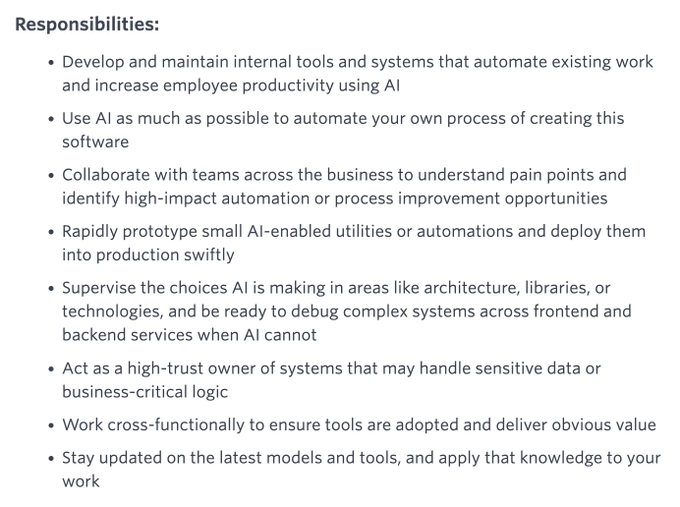Something big is shifting in tech hiring.
CEOs aren’t just looking for experience. They’re hiring for one high-impact skill that cuts across roles.
Here’s how Quora’s CEO, Adam D’Angelo, put it:
And he’s not the only one. Across Australia and around the world, companies are racing to find people who can turn AI from a buzzword into real business results. These roles aren’t limited to engineers either. Leaders are looking for problem-solvers who understand how to use AI to boost productivity, automate workflows, and create value across teams.
The Disconnect Between AI Hype and Delivery
While everyone's talking about AI, there's a massive gap between excitement and execution. Companies are investing millions in AI capabilities but struggling to see real results. The problem isn't a lack of ideas or even technology. It's finding people who can bridge the gap between AI potential and practical implementation.
What Is an AI Automation Engineer?
An AI Automation Engineer isn't just another tech job title. They're the practical problem-solvers who turn AI capabilities into real business solutions. Unlike data scientists who focus on building models or software developers who create applications, AI Automation Engineers specialise in identifying workflows that can be enhanced or replaced by AI, then building the systems to make it happen.
Think of them as the bridge builders between cutting-edge AI technology and everyday business operations. They're hands-on implementers who understand both business processes and technical possibilities.
What Do AI Automation Engineers Actually Do?
While the title might sound fancy, the day-to-day work of an AI Automation Engineer is refreshingly practical. Here's what they typically handle:
1. Identify Automation Opportunities
They spot the bottlenecks and repetitive tasks across an organisation that are ripe for automation. This requires understanding business workflows and recognising where AI can make the biggest impact.
2. Choose the Right Tools for the Job
Not every problem needs a complex machine learning solution. AI Automation Engineers know when to use simple RPA (Robotic Process Automation), when to implement an LLM (Large Language Model), or when to build a custom solution.
3. Build and Integrate Systems
They create the actual automation pipelines, connecting AI tools with existing business systems. This might involve writing Python scripts, configuring APIs, or building custom interfaces that employees can use.
4. Monitor and Maintain
AI systems need ongoing attention. These engineers track performance, troubleshoot issues, and continuously improve their automations as business needs evolve.
5. Translate Between Teams
Perhaps most importantly, they communicate effectively with both technical and non-technical stakeholders. They can explain complex AI concepts to business teams and translate business requirements into technical specifications.
Why Are AI Automation Engineers So Hard to Find?
The shortage of AI Automation Engineers stems from their unique hybrid skillset. They need to understand business processes, have technical programming abilities, and possess practical AI knowledge. This combination rarely comes from a single degree program or career path.
Most companies are looking for people who can:
- Understand the business context and identify high-value automation opportunities
- Code proficiently (typically in Python) to build integration pipelines
- Navigate AI tools and platforms without getting lost in theoretical complexities
- Communicate effectively with both technical and non-technical stakeholders
- Deliver measurable business results, not just interesting experiments
What makes these professionals particularly rare is that the role requires both breadth and depth. They need enough technical knowledge to implement solutions but also the business acumen to focus on what actually matters.
Can You Become an AI Automation Engineer?
The good news is that many professionals already have transferable skills that position them well for this role. You don't necessarily need an AI degree or years of machine learning experience to get started.
These backgrounds tend to transition well into AI automation:
- Data engineers who already understand data pipelines and integration
- Operations specialists with deep knowledge of business processes
- Business analysts who can identify inefficiencies and opportunities
- Software developers who want to apply their skills to AI implementation
- IT professionals with system integration experience
You don't need to be an AI wizard, just a smart problem-solver who can turn ideas into real systems.
